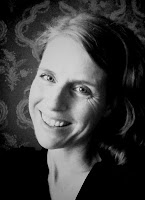17th August 2016
Contributing writer for Wake Up World
Consumerism goes hand in hand with the “the good life” — at least according to our contemporary Western culture. Massive advertising, securing the bargain, garage sales and credit cards are simply par for the course and rarely questioned by the average person. Shopping during our lunch hour is a national pastime, we wander outlet malls on vacation, and make online purchases late at night. It’s not just about comfort, our way of living needs to border luxurious. The yardstick of “keeping up with the Joneses” has evolved beyond our neighbors — we’re now competing with the lifestyles of the upper middle class and wealthy. It’s a vicious cycle — and we’re miserable for it. The environment also suffers as our material aspirations climb.
The reasons behind this shift are complex and sobering. But to expect consumerism to disappear altogether is unrealistic. We can’t just shame ourselves into reforming our cultural orientation — although, many have tried. Instead, we can generate true wealth — strong communities, a healthy eco-system, creativity and a sense of connectedness. In short, a self-provisioning, sharing economy.
Work More, Live Less
Juliet Schor, PhD, a professor of sociology at Boston College, is an expert on work, consumption and sustainability. In her book, True Wealth: how and why millions of Americans are creating a time-rich, ecologically light, small-scale, high-satisfaction economy (paperback version of Plentitude) she explores the idea of a new economy, one that moves beyond the work-and-spend cycle to a rewarding lifestyle abundant in time, innovation and community.
“The strategy which optimized individual wealth and well-being over the last 25 years has changed. I am referring to the use of one of our most precious resources: time. For a quarter century, individuals have been devoting an increasing number of hours to the market. Jobs are more demanding and people spend more hours per year in paid employment. More people joined the labor market. Second jobs became more common. Commutes got long. The average individual or household devoted more time and energy to the market, in order to earn money. Fair enough. These were boom times, and many were profiting from them.
“But that devotion to the market had a price. Social ties frayed, as there was less time available to reproduce them. Community eroded. Household production—an important component of a good life—collapsed, especially for certain activities. An excessive market orientation led to more ecological degradation,” said Schor.
Thankfully, it isn’t necessary for us to remain stuck in our current economic model, with long hours of work and diminished social relationships. There’s a better way — and we’re seeing glimmers of it already.
The Falsehood of Sacrifice in the New Economy
When asked to help preserve the environment, most Americans associate the idea with sacrifice — mainly of conveniences, which makes it a hard sell. But Schor believes we need to shift away from this mentality of “scarcity” and move toward true “plentitude,” a life that’s rich in reward and fulfillment.
“It’s not about sacrifice. I termed my book Plenitude to make the point that we can actually be rich in the things that matter most, and that is not a sacrifice at all. I believe the things that are degrading the planet are also degrading human well-being. So the same economic trends that are unsustainable from an ecological point of view are also unsustainable to humans. Change our system and we can restore the planet and make people better off,” said Schor. “Concretely, that means working fewer hours in a primary job and freeing up time for some novel, high value activities. It’s a shift that an increasing number of people are making, gaining tremendous satisfaction in the process.”
Downsizing work hours equals less consumerism. If we’re bringing in a smaller income, we rely more on ingenuity and DIY skills — rather than convenience. And a reduction in consumerism — whether goods, takeout, dry cleaning or other services — naturally shrinks our impact on the environment, from the reduction of fossil fuels and resources used in product manufacturing and transportation, to commuting and traveling less.
Schor imagines what the United States would look like in 2050 with this new economy. First off, people work on average 16-20 hours in regular jobs, receiving standard paychecks. Needs are met in a variety of other ways, like growing food using the most high-tech, ecologically sound methods — essentially low-labour, high-yield technologies. Pretty much every household has a 3-D printer, where they can make small manufactured goods — a household mini-factory. People also rely heavily on collaboration with neighbors and networks. This peer-to-peer economy spans a range of areas — we can already see instances today with companies such as Couchsurfing and Airbnb, along with Uber.
Fritjhof Bergmann has coined the term “self-provisioning” for this new, high-tech, do-it-yourself trend, because it requires less low-skilled labor and produces higher yields, compared to methods of the past. In the realm of food production, permaculture is a perfect example of a knowledge-intensive, light on labor, high yield approach.
Likewise, Fab Labs are another self-provisioning trend. Small, computerized prototyping machines are available for public use to reproduce an entire lifestyle, utilizing scrap materials and programming know-how, the machines make alarm clocks, toasters, furniture, computers, bicycles, clean energy — even prefabricated, low-cost housing. In India, they’re creating solar devices. Afghanistan, it’s prosthetics. The range of products in the U.S. is vast — including a way to program the machines to replicate themselves. As it happens, the National Science Foundation has partnered with community organizations in Metropolitan New York to train low-income high school students how to use these technologies, opening up a new world of self-reliance, innovation and entrepreneurship.
In this ideal economy, people have the time to produce things, such as making clothes or baking, and trading any extra with neighbors in exchange for another item or service.
“It’s an economy of sharing and peer-to-peer collaboration that frees people from high-impact lifestyles and long hours, because most of this activity is local and creative. One thing that people like is variety in how they spend their days. It’s the new economics of household production,” Juliet told Our World. “As people shift out of the “business-as-usual” economy, they are opting into a range of new, ecologically light, high-satisfaction activities and ways of creating livelihood.”
We don’t have to wait until 2050 — we can seize the moment and make it happen now, one person at a time.
Visualizing a Plentitude Economy
Article sources:
- “True Wealth: How and Why Millions of Americans Are Creating A Time-Rich, Ecologically Light, Small-Scale, High-Satisfaction Economy” Juliet Schor, Penguin Books, 2011
- www.yesmagazine.org/issues/new-livelihoods/less-work-more-living
- www.changethis.com/manifesto/71.01.Plenitude/pdf/71.01.Plenitude.pdf [PDF]
- www.ourworld.unu.edu/en/more-of-less-juliet-schor-calls-for-a-more-conscious-lifestyle
- www.new.bostonreview.net/BR24.3/schor.html
- www.nytimes.com/2013/10/15/opinion/after-the-jobs-disappear.html?pagewanted=all&_r=0
About the author:
 Carolanne Wright enthusiastically believes if we want to see change in the world, we need to be the change. As a nutritionist, natural foods chef and wellness coach, Carolanne has encouraged others to embrace a healthy lifestyle of organic living, gratefulness and joyful orientation for over 13 years.
Carolanne Wright enthusiastically believes if we want to see change in the world, we need to be the change. As a nutritionist, natural foods chef and wellness coach, Carolanne has encouraged others to embrace a healthy lifestyle of organic living, gratefulness and joyful orientation for over 13 years.
Through her website Thrive-Living.net, she looks forward to connecting with other like-minded people from around the world who share a similar vision. You can also follow Carolanne on Facebook, Twitter and Pinterest.
Further reading from Carolanne Wright:
- Don’t Ask, Just Plant — Taking Back Our Food Sovereignty with Guerrilla Gardening
- Seed Bombs: A Creative (and Fun) Mission to Save the Bees and Butterflies
- Autistic Boy with Higher IQ Than Einstein Discovers Gift After Removal from State-Run Therapy
- Dr Sebi: The Man Who Cures Aids, Cancer, Diabetes and More
- Big Pharma and Organized Crime — They are More Similar Than You May Think
- Monsanto, Big Pharma, George Soros, and the Push to Legalize Marijuana
- Emotional Energetic Healing: The Future of Medicine is Here
- The Greenhouse of the Future: Grow Your Own Food Year-Round With This Revolutionary System
- CDC Concealed Link Between Thimerosal and Autism for Over a Decade, Forced to Release Incriminating Documents

If you've ever found value in our articles, we'd greatly appreciate your support by purchasing Mindful Meditation Techniques for Kids - A Practical Guide for Adults to Empower Kids with the Gift of Inner Peace and Resilience for Life.
In the spirit of mindfulness, we encourage you to choose the paperback version. Delve into its pages away from screen glare and notifications, allowing yourself to fully immerse in the transformative practices within. The physical book enriches the learning process and serves as a tangible commitment to mindfulness, easily shared among family and friends.
Over the past few years, Wake Up World has faced significant online censorship, impacting our financial ability to stay online. Instead of soliciting donations, we're exploring win-win solutions with our readers to remain financially viable. Moving into book publishing, we hope to secure ongoing funds to continue our mission. With over 8,500 articles published in the past 13 years, we are committed to keeping our content free and accessible to everyone, without resorting to a paywall.







